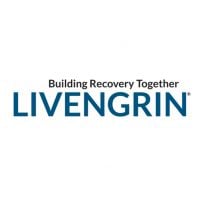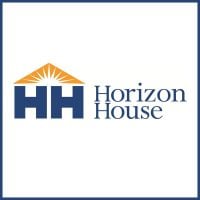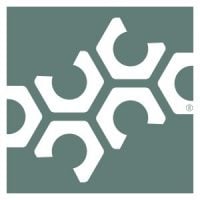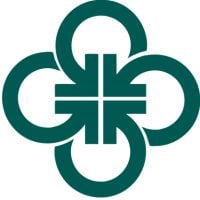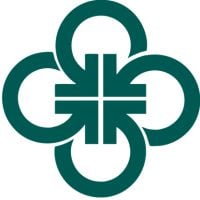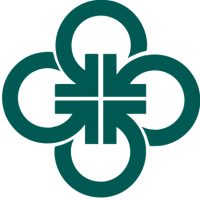Center City Recovery
Drug Rehab Center in Philadelphia, Pennsylvania
Center City Recovery in Philadelphia, Pennsylvania is a recognized addiction treatment facility that specializes in treating individuals suffering from alcoholism, dual diagnosis, opioid addiction, and drug addiction, offering a comprehensive range of personalized services to support long-lasting recovery.
Multiple patients have reported Center City Recovery as permanently closed.
Research other rehabs in Philadelphia, Pennsylvania, or get help finding an open facility.
About Center City Recovery in Pennsylvania
Center City Recovery is an Addiction Treatment Facility located in Philadelphia, Pennsylvania. They specialize in treating individuals suffering from alcoholism, dual diagnosis, opioid addiction, and drug addiction. Center City Recovery is a recognized and accredited facility, holding certifications from JCAHO (Joint Commission on Accreditation of Healthcare Organizations), SAMHSA (Substance Abuse and Mental Health Services Administration), and the State License. This accreditation ensures that the facility adheres to the highest standards of quality and safety in providing addiction treatment.
At Center City Recovery, they offer a comprehensive range of services to address addiction and substance abuse. Their programs include aftercare support, drug rehab, intensive outpatient treatment, intervention services, outpatient treatment, and partial-hospitalization levels of care. These services are tailored to meet the unique needs of each individual, ensuring a personalized and effective approach to recovery. Center City Recovery accepts private health insurance, making their services more accessible to those seeking help. With their specialized expertise and commitment to quality care, Center City Recovery is dedicated to helping individuals overcome addiction and achieve long-lasting recovery.
Genders
Ages
Modality
Additional
Accreditations
State License
SAMHSA

JCAHO
Conditions and Issues Treated
Opioid + Opiate Addiction Treatment in Philadelphia, PA
Many people who struggle with opioid addiction need to attend specific programs like methadone , Suboxone or Vivitrol clinics.
These types of programs will provide the patient with legal, prescription medications that can help them overcome their cravings for illegal opioids like heroin or fentanyl . If the patient has a chronic condition like Hepatitis C, they must undergo treatment before they can begin taking these medications.
Levels of Care Offered
This center offers a variety of custom treatment tailored to individual recovery. Currently available are Aftercare Support, Drug Rehab, Intensive Outpatient, Intervention, Outpatient, Partial-Hospitalization, with additional therapies available as listed below.
Intensive Outpatient (IOP)
An intensive outpatient program is usually the first phase of addiction treatment. It provides relief for those who are addicted, but are not ready to commit to an inpatient setting. Typically, the patient lives at home and is able to work or go to school. IOPs consist of a daily 3 to 5-hour program, and there is a required number of hours per week. Most patients go to IOP between 20 and 40 hours per week. The patient attends group counseling and individual therapy throughout the duration of treatment. They also meet daily with their therapist to discuss how it’s going and where they are in the recovery process.
The goal here is to teach patients healthy coping skills, such as stress management and identifying thoughts and behaviors that lead to relapse. The implementation of these skills will be useful as the individual transitions into the next phases of treatment.
Outpatient Program
An outpatient treatment program is set up to help with alcohol or drug addiction, or a co-occurring disorder. The patient must attend the Pennsylvania facility for their therapy and other programs but are able to return home each night. The frequency of mandatory attendance decreases after much of Center City Recovery‘s program is complete.
Partial Hospitalization Program (PHP) in Philadelphia, PA
A PHP is a treatment program in Philadelphia, Pennsylvania where people struggling with drug and alcohol addiction attend therapy during the day at a treatment facility. People may be required to sleep on-site each night, or they may be allowed to return to their home every night, but treatment is generally 24 hours a day, seven days a week. Many treatment programs are limited to treatment during the day or treatment during certain hours of the day.Intervention services can be beneficial for people who have not been able to overcome drug and alcohol addiction on their own. It is recommended for individuals whose addiction has led to dangerous or life-threatening circumstances.
Intervention services are beneficial for:
- People who have relapsed after completing other forms of addiction treatment.
- People with drug addictions that have led to dangerous health conditions, such as HIV.
- People who are at risk of losing their family, home, or job due to addiction.
- People who are having difficulty overcoming drug and alcohol addiction on their own.
- An intervention can be conducted by professionals, or by loved ones of an addict. If the person being intervened on agrees to enter addiction treatment after the intervention, the next step would be to choose a treatment program.
If they do not agree to enter addiction treatment after the intervention, loved ones may choose to go back to the drawing board and try another form of treatment. They may also choose to not receive any further treatment, but there are usually other factors in play that may make it difficult for people to stop using drugs or alcohol.
Aftercare is a term that’s used to refer to any sort of continuing care offered for a drug addict who has voluntarily entered a rehabilitation program. This type of care can be provided in several settings, including outpatient therapy sessions after the addict has completed an inpatient program. There are also 12-step support groups, such as Alcoholics Anonymous, which can provide additional help for addicts trying to stay sober.
Therapies & Programs
Individual Therapy
Individual Therapy is a critical component of addiction recovery. Therapists work with patients to identify the root of their addiction and figure out how to better handle the issues that led to them using drugs. Individual Therapy is the one-on-one session where people meet with their therapist. Individual therapy provides a safe space for people to open up and discuss personal and sensitive topics which they may not feel comfortable discussing in a group setting.
Couples Therapy
Couples therapy at Center City Recovery focuses on addiction treatment for the addict and their spouse. The addict’s family, not just the addict, can benefit from this form of therapy. Couples therapy addresses communication problems, trust issues, lack of intimacy, and abuse in intimate relationships. Couples therapy can help rebuild trust between partners, which increases the chances for successful treatment and sustained recovery.
Intimate relationships can be damaged during addiction, and professional help may be necessary to rebuild the often destroyed trust and love. Couples therapy at Center City Recovery helps couples improve communication and rebuild trust. Either or both partners will be helped by this treatment administered by professionals. This treatment can also help one or both partners if addiction is the problem.
Family Counseling
Family therapy will also help families realize that the addiction is not their fault. For many years, people blamed themselves for an addict’s behavior and felt that they had done something wrong. This is not the case. Addiction is a disease, and it can strike anyone, even if their life seems fine from the outside. It can bring a lot of shame to a family when they have an addict in their midst, but if everyone is open and honest with each other, then they can help everyone stay in recovery.
Group Therapy is utilized by drug treatment centers like Center City Recovery to provide the recovering drug addict with a platform to talk about their feelings and experiences. It also provides for an opportunity to learn from other addicts who have successfully overcome their addiction.
Group Therapy is employed in lectures, seminars, or discussion groups (the latter two are typically conducted as “therapy groups”). It is recommended that all group members be recovering addicts for this type of therapy to work (though it does not exclude others with lived experience).
Trauma therapy is a clinical process that helps individuals deal with mental stress often caused by traumatic events. It is generally done for children, teenage victims of sexual assault, and war veterans. The therapist helps the person identify, understand and work through the problem. This is done with the help of talking about it in group or one-on-one counseling sessions. Therapists use relaxation, role-playing, art, and music to help the person open up about what is bothering them.
(REBT) was developed by Dr. Albert Ellis in 1955. The therapy is based on the premise that our beliefs lead to and maintain our emotions and behaviors. Therefore, if a person has irrational thoughts, they will have an unhealthy emotional life. And as long as those irrational beliefs remain unchanged, they will continue to have unhealthy emotions and behaviors.
REBT is a purely psychological therapy, meaning it does not incorporate the use of medications or supplements. Instead, REBT focuses on helping people understand, respect, and accept their feelings without judgment, enabling them to have more control over their actions and behaviors.
The therapeutic process is straightforward: clients learn to identify the irrational beliefs that cause distress, challenge good coping statements, and replace them with healthy, rational beliefs.
Nutrition therapy has been used to help drug addicts for decades. Many early reports on addiction treatment indicate that some patients recovered from the “satisfying power of food”. For years, this phenomenon has been utilized as a treatment modality in eating disorders for adults, adolescents, and children. Specific nutrients have been identified that influence neurotransmitters associated with reward pathways of the brain.
Studies have shown that carbohydrate loading with complex carbohydrates to elevate serotonin levels was effective in treating bulimia nervosa. This approach prompted researchers to explore the use of this type of nutritional intervention in other disorders.
Training in improved life skills helps those recovering from addiction feel more capable of self-care. Center City Recovery are daily skills that give the person the tools they need to survive.
The therapy covers practical activities like cooking, job hunting, social interaction, and money management, helping to fill in the knowledge gaps caused by addiction.
These life skills help the person self-manage their recovery and stay on track. It also reduces relapse risk as they gain confidence in their day-to-day abilities.
Payment Options Accepted
For specific insurance or payment methods please contact us.
Is your insurance accepted?
Ask an expert, call (888) 674-0062
Additional Details
Specifics, location, and helpful extra information.
Philadelphia, Pennsylvania 19103 Phone Number(877) 573-0032 Meta DetailsUpdated November 25, 2023
Staff Verified
Center City Recovery Patient Reviews
There are no reviews yet. Be the first one to write one.
Philadelphia, Pennsylvania Addiction Information
Pennsylvania ranks 14th in the nation for drug-related deaths. More than 10% of all deaths in Pennsylvania have been related to drugs and alcohol. 30% of Pennsylvania youth reportedly drink alcohol monthly, with more than 20,000 teenagers having an alcohol problem. The rate of opioid misuse in Pennsylvania is double the national average.
Drug addiction and abuse are a big problem in Philadelphia, Pennsylvania. According to recent statistics, about 73,000 people in Philadelphia struggle with drug addiction. This means that about 7.5% of the population is addicted to drugs. Philadelphia also has one of the highest overdose rates in the country, with about four deaths per 100,000 people. It is important to choose a program that fits the individual's needs and addiction severity.
Treatment in Nearby Cities
- Bloomsburg, PA (99.2 mi.)
- Wexford, PA (261.8 mi.)
- Beaver Falls, PA (276.9 mi.)
- Waynesboro, PA (128.5 mi.)
- Saint Clair, PA (75.5 mi.)
Centers near Center City Recovery
The facility name, logo and brand are the property and registered trademarks of Center City Recovery, and are being used for identification and informational purposes only. Use of these names, logos and brands shall not imply endorsement. RehabNow.org is not affiliated with or sponsored by Center City Recovery.





